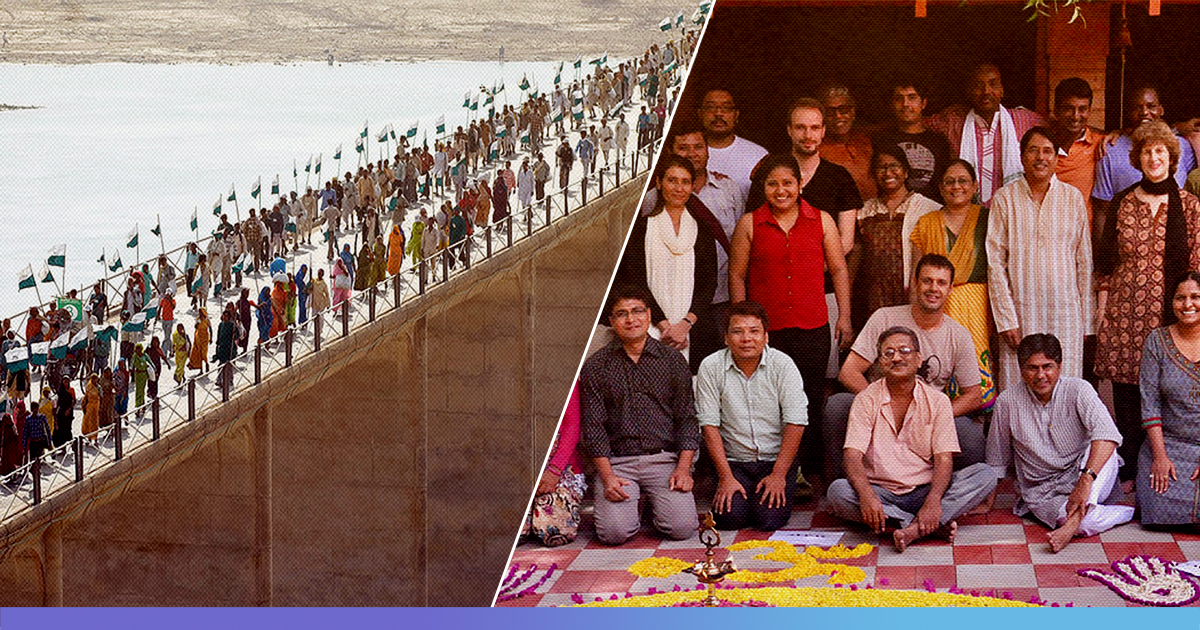October 2, 2019, marks the 150th birth anniversary of the father of nation Mahatma Gandhi. On this occasion, a 14,000 km, one-year global march for justice and peace, called ‘Jai Jagat 2020’, will kick-off from New Delhi to Geneva.
In India, the march will be a combination of caravan style and foot march, through 10 states covering a distance of 5000 kilometres. Apart from the core walkers, local people from their respective countries would also be joining the Yatra.
Simultaneously there will be four other marches: one from Chambal to Bangladesh; a second from Chennai to Ramashwaran; third one from Porbander to Dandi via Ahmedabad; and a fourth around the country looking at Gandhi institutions.
Gandhian Rajagopal P.V., one of the organisers of the march, said at a press conference that the aim of the march was to spread the message “all for the planet and the planet for all.” He said the first four months of the march would be in India, from Rajghat in New Delhi, to Sevagram in Maharashtra. After that, the group, which includes ten international participants, will fly to Dubai, then make its way to Iran by sea and then carry on the march through Armenia, Georgia, Bulgaria, Serbia, Bosnia and Herzegovina, Croatia, Italy and Switzerland.
The Jai Jagat organisers in a statement said, “In the current scenario where the world is surrounded with so much conflict, it is important that people rise above individualism, regionalism, and nationalism. The survival of the whole human race is threatened, and we are fighting with each other. In such a situation only the concept of Jai Jagat can get us freedom from all these disturbances.”
“Thus now it is important that we see the whole world as a family and work towards the well-being of everyone. The journey that is beyond individualism, regionalism and nationalism would prove to be beneficial for the survival of the natural world as well,” the statement read.
The march has four core pillars of advocacy, eradication of poverty, social inclusion, climate justice and nonviolent resolution of conflicts.
Jill Carr-Harris, one of the lead organisers of the march, recounted how Gandhi’s ecological understanding of development is relevant today in the context of climate change and planetary crisis. “This integration of climate mitigation must not be seen as ”carbon alone”, for we need to examine the values beneath our actions to re-establish a better relationship with the earth,” she said.
Conducted across 10 countries with non-violence training and events on key justice themes along the way, and joining separate marches starting from a number of countries in Europe and northwest Africa as well as delegates from around the world, participants will be welcomed and hosted by the City and Canton of Geneva for a week (September 26– October 2, 2020) of workshops, advocacy meetings and cultural events.
Local committees all along the route will organise daily events with non-violence training, making this a year-long practice of non-violence. All the events organised will be under the hat “Geneva, Capital of Peace”, with the central theme “Be the change”.
Also Read: Tribute To Mahatma Gandhi: India Likely To Ban Single-Use Plastic Products From Oct 2











